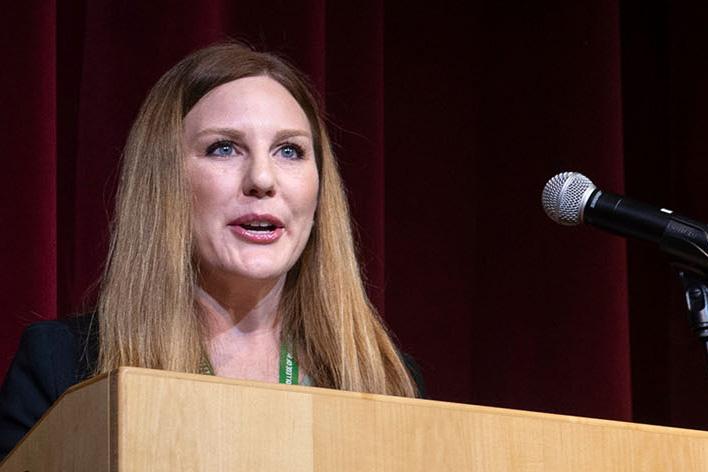Communication and Change
Most organizations and their members resist change and the disruption it causes in routines that have become comfortable and familiar. In order to prepare organizations to thrive in the midst of innovation, leaders must take advantage of communication tools designed to effectively introduce and navigate change. The Communication and Change certificate focuses on communicative strategies to secure employee buy-in, reduce ambiguity associated with change, and develop training plans to ensure that organizational members are prepared to pivot and adapt to disruptions to their routines. Learn how to assist organizations in designing messages that align the current culture with proposed changes, and to formulate strategic plans that take into account the analysis of various audiences.
Completing the certificate fulfills 12 of the required elective hours for the online Master’s degree in organizational communication. Students admitted to this certificate may also seek admission to the Organizational Communication degree, and/or other certificates.
Who should apply?
We designed this certificate for current or aspiring leaders and organizational members who have an interest in understanding and enhancing skills associated with effectively communicating about organizational change or innovations.
OHIO Online Incentive Scholarships are available to OHIO alumni, as well as employees of our 50+ corporate partners, military active duty, and veterans. The 15% scholarship applies to instructional, program, and non-resident fees.
Required Courses
The certificate requires 12 credit hours, made up of the required courses listed below. Students must earn a grade of “B-“ or higher in a class in order for it to count toward the certificate completion. A cumulative GPA of 3.0 or higher for all three courses is required for certificate completion.
- Instructional Training and Development in Communication (COMS 6270): Includes philosophies of organizational development; theories of instructional design, emphasizing stages of planning implementation, and evaluation; and communication training skills, including needs assessment and evaluation, writing objectives, application of communication content, and selection of instructional modes and resources—all investigated within business, professional, and governmental organizational contexts.
- Communication and Persuasion (COMS 6300): Process of communication and attitude change, survey of general theories and typical research, analysis of contemporary persuasion.
- Communication and Information Diffusion (COMS 7230) Analysis of major approaches to data and information diffusion systems on local, regional, national, and international levels. Emphasis on acquisition analysis and dissemination of data as information, including critical points of interface and interaction between a system and its uses.
Note that course offerings vary by term. To ensure that you complete the certificate in your desired timeline, contact an OHIO Online Advisor at onlinegrad@ohio.edu to create a certificate plan.
Skills and Competencies
- Identify strengths of various communication channels for communicating about change.
- Develop communication and leadership skills for implementing change
- Understand influence strategies to secure support and buy-in of change efforts.
- Explore strategies for soliciting feedback about innovations.
- Develop effective training seminars to prepare organizations for adapting and integrating change.
Contact Us
Please fill out the request info form on this page to receive more information about this program.
For more information about Ohio University's Online Communication and Change Certificate, please contact an OHIO Online Advisor at onlinegrad@ohio.edu. We’re here to help answer your questions and guide you through the admissions process.
